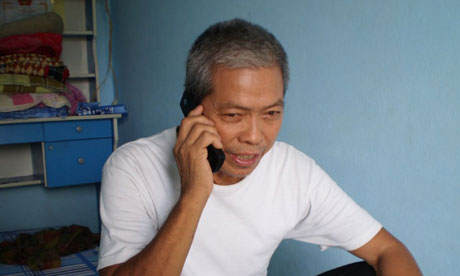By: Jessica Ties
Impunity Watch Reporter, Asia
BEIJING, China – Protests continue into a fourth day in China where residents are expressing anger that land taken by the government has remained idle for years.

Police have been exercising control of Guangdong’s Lufeng city as citizens protest not only the government’s taking of farmland but also the inadequate compensation paid by officials.
Reportedly, the protesters had only received 500 yuan per person, the equivalent of 78 American dollars, in compensation. The amount of compensation is shockingly low when compared to the $156 million paid by developers for the most recently seized plots.
According to Lufeng city officials, the land has been sold to be used for the development of industrial parks and high priced housing. There have also been reports that developers intend to use the land to build a luxury holiday resort, tourism villas and a neon-lit nightclub.
One protester, Chen, stated that the police “…have been sitting on that land and not using it, while more than 10,000 people in our area have no land to cultivate.”
A local resident and protest participant, Yang, estimated that between 3,000 and 4,000 people took part in the first day of protest which began on Wednesday following reports that more than 800 acres of the land that had been taken from farmers had been sold.
By Thursday several hundred armed officers and riot police were dispatched to disperse protesters. Violence increased following the detention of several protesters by police as fellow protesters attacked the police station and overturned two police cars in demanding release of those who had been detained.
According to a local resident, the four individuals who were detained haven’t been released and the police have become increasingly violent, sending several people to the hospital including two thirteen year old children who were seriously harmed.
Chen described the nature of such attacks: “[a]t about 10:00 a.m. [Thursday], the villagers were having a meeting, when [the police] suddenly drove up and starting beating people.”
The villagers retaliated against police violence by vandalizing four police cars, besieging government buildings, overturning SWAT team vehicles and attacking police officers. The clashes resulted in more than a dozen protesters being injured by police batons.
It has also been reported that residents have attacked local businesses, including a factory and a livestock farm. On Friday, hundreds of protesters gathered outside of government offices, banging gongs, chanting and carrying banners reading “Return our farmland!”
Thousands of protests, many of which become violent, by local communities in China are sparked each month by official land acquisitions that result in lucrative offers for officials while the landowner receives little compensation in return.
For more information, please see:
Reuters – Land Grab Protest in S. China Simmers for 4th Day – 24 September 2011
The Wall Street Journal – Riots Erupt Over Land in China – 24 September 2011
The New York Time – Farmer’s in China’s South Riot Over Seizure of Land – 23 September 2011
Radio Free Asia – Protests Intensify After Clashes – 23 September 2011



